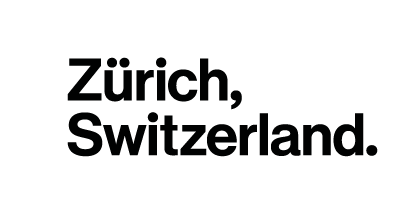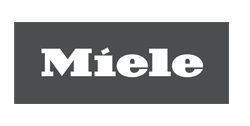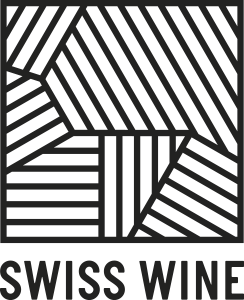“Ich will die Gäste zum Weiterdenken anregen”
Michael Wehrli betreibt das Kulturareal Mühle Tiefenbrunnen im Kreis 8. In den beiden Lokalen auf dem Areal arbeitet er am liebsten mit kleinen Produzent:innen aus der Region. Das ist nicht immer einfach, aber den zusätzlichen Aufwand machen für ihn Inspiration und Umweltschutz mehr als wett.Michael Wehrli, wie findet man gute Food-Produzent:innen?
Es braucht ein gutes Netzwerk, ein Gespür für gute Qualität, sowie Zeit, um auf die Produzent:innen einzugehen. Viele gute, lokale Produzent:innen produzieren nur kleine Mengen. Es braucht also auch ihr Vertrauen in unseren Betrieb, damit eine gute und nachhaltige Beziehung entstehen kann.
Nennen Sie uns bitte ein, zwei, drei Produzent:innen, mit denen Sie gerne zusammenarbeiten und warum.
Da gehört zum Beispiel die Brauerei ‚Seebueb’ dazu. Auf den ersten Blick eine von zahlreichen lokalen Brauereien. Aber auf den zweiten Blick wohl eine der einzigen, die für unser Offenbier sowohl den Hopfen wie auch die Gerste aus ihrer unmittelbaren Nachbarschaft bezieht. Oder ‚Pura Verdura‘, ein solidarisches Landwirtschaftsprojekt bei uns im Quartier, wo wöchentlich das geliefert wird, was der Bio-Acker hergibt. Für unsere Küchencrew ist das jeweils ein willkommener Kreativ-Anstoss.
Welche weiteren Vorteile bietet das Konzept Farm to Table für Restaurantbetreiber:innen?
Es macht Spass, die Menschen zu kennen, die hinter den Produkten stehen. Ihre Arbeit zu begleiten, inspiriert uns immer wieder von Neuem. Herausforderungen gibt es natürlich auch: Die Planbarkeit ist schwieriger, was zum Beispiel im Bankettgeschäft nicht immer einfach ist. Auch die verfügbaren Mengen können Stolpersteine sein. So ist zum Beispiel die Menge an Zürcher Wein letztes Jahr wetterbedingt stark eingebrochen.

Das führt zur Frage: Kann man als Gastrobetrieb denn überhaupt rentabel wirtschaften und gleichzeitig auf nachhaltige Nahrungsmittel schauen?
Das ist – um ehrlich zu sein – nicht immer einfach. Die positiven Treiber sind: weniger Fleisch auf der Karte und dem Teller, mehr von jedem Gemüse und von jedem Tier verwerten (Leaf to root, Nose to tail), praktisch keine industriellen Verarbeitungsschritte, kurze Wege und weniger (Zwischen-)Händler involvieren. Es gibt aber selbstverständlich auch Herausforderungen: Für diese Art zu handeln, ist besser qualifiziertes Personal und viel mehr Handarbeit notwendig. Teilweise ist auch die Logistik eine Herausforderung.
Wie bringen Sie Ihre Wertschätzung für umweltverträgliche Lebensmittel an den Gast? Oder auch: Ist Ihnen wichtig, dass ihr Gast weiss, woher die Nahrungsmittel kommen, die auf seinem Teller liegen?
Der Genuss muss in der Gastronomie immer im Vordergrund sein. Dem sensibilisierten Gast möchten wir die Gewissheit vermitteln, dass wir uns um gute und ehrliche Produkte kümmern und den dafür notwendigen Ressourcen stets Sorge tragen. Für alle anderen Gäste stimmt die Qualität und das Erlebnis – auch ganz ohne Hintergrundwissen. Wir möchten weder dogmatisch noch belehrend sein. Im Idealfall lassen sich beide Zielgruppen von unserem kulinarischen Facettenreichtum positiv überraschen.
Regional, saisonal, bio – das liest man heute auf fast jeder Speisekarte oder Webseite von Restaurants. Die wenigsten halten sich konsequent daran. Warum gehen Sie mit der “Blauen Ente” die Extrameile und investieren so viel Zeit in die Beschaffung von nachhaltigen Lebensmitteln?
In meinen unternehmerischen Tätigkeiten ist der Nutzen für die Gesellschaft immer ein Teil meiner Rendite. Sowohl bei meinem Engagement im Kultur-, wie auch im Gastrobereich möchte ich etwas bewegen. In beiden Bereichen ist es mir ein Ansporn, die Gäste nicht nur qualitativ zu begeistern sondern auch anzuregen zum Nach- und Weiterdenken; über sich und ihre Umwelt. Als Umweltnaturwissenschafter bin ich seit jeher für diese Themen sensibilisiert. Ich engagiere mich auch als Vorstandsmitglied des Ernährungsforum Zürich für mehr Nachhaltigkeit in der Ernährung.

Was macht Sie glücklich, an der Art und Weise, wie Sie Ihren Betrieb führen?
Als Naturwissenschaftler, als Vater von zwei Söhnen und letztendlich auch als politischer Mensch beschäftigen mich die aktuellen Veränderungen sehr (Klimawandel, soziale Ungerechtigkeit, Bodenverbrauch, Biodiversitätsverlust, Grundwasserqualität etc.). Wir werden unser Verhalten in Zukunft dramatisch verändern müssen, wenn wir den Kopf noch aus der Schlinge ziehen möchten. Es bedeutet mir viel, für die zukünftigen Herausforderungen bereits heute lustvolle Antworten zu finden. Wir sind in der Mühle Tiefenbrunnen diesbezüglich sehr offen und neugierig unterwegs, was mir und dem ganzen Team viel Freude bereitet.
Stichwort kurze Wege: Sie bieten in der Blauen Ente rund 100 Weine vom Zürichsee an. Unter anderem Traubensorten, von denen die meisten noch nie etwas gehört haben. Verraten Sie uns Ihre Lieblingsweine?
Die Weine aus der Region Zürichsee sind qualitativ hochstehend und enorm vielfältig. Das Terroir ist für anspruchsvolle Weine sehr geeignet. Pinot Noir und Räuschling sind nur der Anfang. Leider wird die Region noch immer unterschätzt und die Köpfe vieler Zürcher:innen sind voller Vorurteile gegenüber dem eigenen Weinschaffen. Da möchten wir gerne Gegensteuer geben.
Sie haben dafür sogar ein Festival gegründet, das ‚Terroir Zürisee‘.
Ja, damit bieten wir eine gute Gelegenheit, die Weine der Region kennenzulernen. Ich persönlich trinke gerne abwechslungsreich: vom traditionellen Blauburgunder, über die pilzresistente Sorte Souvignier Gris bis zur wiederentdeckten Ursorte Elbling –nur auf Barrique-Weine kann ich gut verzichten.
Zu den Personen:
Michael Wehrli ist Geschäftsführer der Mühle Tiefenbrunnen. Der Treffpunkt im Riesbach-Quartier ist wie eine urbane Insel: Ein verkehrsfreier, pulsierender Begegnungsort, an dem man fein essen (einmal gehoben in der ,Blauen Ente’ und einmal unkompliziert im ,Café Kornsilo’), verweilen, trainieren, einkaufen oder einen Kulturanlass besuchen kann. Mit Freund:innen, Geschäftspartner:innen und gerne auch mit der ganzen Familie.
https://www.muehle-tiefenbrunn...
https://www.muehle-tiefenbrunnen.ch/festivals/terroir-zuerisee




